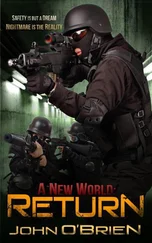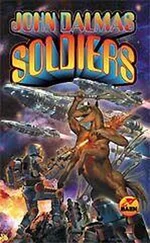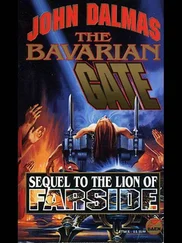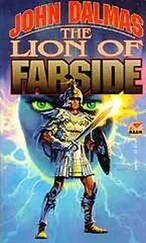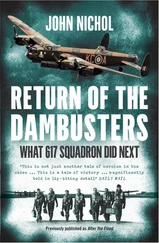John Dalmas - Return to Fanglith
Здесь есть возможность читать онлайн «John Dalmas - Return to Fanglith» весь текст электронной книги совершенно бесплатно (целиком полную версию без сокращений). В некоторых случаях можно слушать аудио, скачать через торрент в формате fb2 и присутствует краткое содержание. Жанр: Фэнтези, на английском языке. Описание произведения, (предисловие) а так же отзывы посетителей доступны на портале библиотеки ЛибКат.
- Название:Return to Fanglith
- Автор:
- Жанр:
- Год:неизвестен
- ISBN:нет данных
- Рейтинг книги:4 / 5. Голосов: 1
-
Избранное:Добавить в избранное
- Отзывы:
-
Ваша оценка:
- 80
- 1
- 2
- 3
- 4
- 5
Return to Fanglith: краткое содержание, описание и аннотация
Предлагаем к чтению аннотацию, описание, краткое содержание или предисловие (зависит от того, что написал сам автор книги «Return to Fanglith»). Если вы не нашли необходимую информацию о книге — напишите в комментариях, мы постараемся отыскать её.
Return to Fanglith — читать онлайн бесплатно полную книгу (весь текст) целиком
Ниже представлен текст книги, разбитый по страницам. Система сохранения места последней прочитанной страницы, позволяет с удобством читать онлайн бесплатно книгу «Return to Fanglith», без необходимости каждый раз заново искать на чём Вы остановились. Поставьте закладку, и сможете в любой момент перейти на страницу, на которой закончили чтение.
Интервал:
Закладка:
Those who wanted to run figured we might reach Sicily, and that if we were about to get caught, then we could stand and fight. Those who wanted to make a stand now figured we didn't have a chance to reach Sicily, and they wanted to fight before they got any more tired from rowing. They assumed they were going to get killed anyway, and they wanted to kill as many Saracens as they could while they were at it.
Michael told me the Varangians were famous for never surrendering. According to him, the most dangerous thing you could do was trap Varangians.
Finally, Gunnlag had heard enough, and bellowed one short command. The argument thinned down to a few "last words" by some of his men to some of the others, then stopped. We kept going.
Arno went up to the bow. I followed and sat down next to him. "What decided the argument?" I asked.
He looked at me and grinned, reminding me of the Arno I'd seen before a few times-happy-go-lucky.
"I told Gunnlag that if we stopped, the Saracens would come up on us all at once. But if we kept running, they'd probably come up on us one at a time. And that one at a time I could use the device you gave me to sink them or drive them away."
He took it out of its holster and looked at it thoughtfully, slipping the silent safeties off and on. "It isn't accurate at a distance, and without the recharge cylinders"-he used the Evdashian words for them, of course-"I must make each shot count, which means we must be close, within reach of their arrows. If they come at us all at once, we'll be under heavy fire, and these"-he gestured around to indicate the Varangians- "would stop rowing to fight. We would surely be taken then.
"Not that I explained all that to Gunnlag. Best he thinks of this as thaumaturgy instead of the handwork of some weapons artificer."
That took me by surprise. I'd assumed that Arno himself still thought of it as magic.
"It was then he made up his mind," Arno finished.
He looked me over. "In your way, you are brave. And you are one of those who are still alive after the danger or chase or fight are past. You proved that in Savoie and Normandy, more than once. Nonetheless, if it comes to it and they close with us, I'll see that one of the Varangians covers you against arrows with a shield. Then, just before the ships touch, you rise up with your stunner and sweep its force along their rail. Some of us will cut the ropes."
He grinned again. "We will arrive at Palermo yet, you and I."
Before Gunnlag ordered us back to the oars, I tried the communicator once more, just in case. And once more got no answer. When I sat down to row again, we could see Sicilian hills in a faint line along the horizon.
At the end of our next shift, the hills were a lot closer, but the Saracen dromans were too. At the end of the shift after that, the nearest two dromans were almost even with each other, and I could imagine them treating it as a race, with us as the prize.
The bosun quickened our pace, and I wasn't sure I could make it through my next shift. Arno wasn't rowing now; he was with Gunnlag in the stern. He must have had quite a bit of experience with the blast pistol we'd left with him before; I hoped he'd gotten good with it. When at last I was relieved, I could see more than the Sicilian hills, which weren't so high here. I could even make out the shore, we were that close. Maybe three miles, I thought, and turned and went aft.
Behind us, the Saracens were so near, I could easily see the oars of the nearest two. They'd gotten strung out at last. There was the nearest, then maybe a couple of hundred yards back the second. The third was probably a half mile farther still.
I couldn't tell whether we were going to reach the shore ahead of them or not. Or what we'd do if we did. Looking down into the long ship's bottom and then over the side at the water, it seemed to me she couldn't draw more than four feet of water. But for seaworthiness, she had a keel. And for all I knew, the keel could be deep enough that we'd hit bottom in water over our heads. Or there might be a reef offshore, or a shoal, and we'd pile up on it a quarter or half mile out.
I supposed the Varangians could swim, but not with hauberks on, or swords at their belts. And in Normandy, I'd discovered the hard way that a blaster, or at least some blasters, wouldn't fire after being submerged in water. Did the dromans have small boats aboard? Would they launch them to attack us as we swam, or to follow us ashore? Did the Normans control this part of the island? If they didn't, were there Saracen troops in the vicinity? Were those hills wild? How far could we travel without being discovered?
I went aft to wait with Arno.
The first droman was close enough now that I could see the white of her bow wave, and make out men at her rail. Five would get you ten, I thought, that they had bows strung and ready. The cadence of their rowing was no faster than ours, but their two-man oars gave longer strokes, and their ship, if not as graceful as the long ship, had lines well built for speed.
At maybe a hundred yards they shot a few trial arrows, which fell close astern of us. The Varangians not rowing stood in the walkway with shields, ready to protect their oarsmen. One also stood by Gunnlag to protect him while he steered. At this point, Arno and I crouched with only our heads above the gunwales. A minute later the Saracens fired a small volley, and the first arrow struck the stern; we heard it thud.
Arno raised up enough to level the blaster, holding it with both hands, wrists braced on the gunwale. Then he fired, and I saw a flash at the bow of the droman, but I couldn't see if he'd blasted a piece out of the bulwark or actually hit a bowman. A bowman, I decided; I could hear men yelling, and it didn't sound like battle cries. By the flash, his next bolt hit the bow a little above waterline. The hole would have been a good foot wide, I'd think, and hopefully low enough to be taking water. But the droman came on, and a flight of arrows rose visibly from her, so Arno fired two more bolts into the massed archers in the bow.
This time we heard unmistakable screaming. He must have killed a couple of them, messily, and the droman began to veer off. That's when he lucked out. I mean, it may have been what he was trying to do, but he had to be lucky to do it: As she began to veer, he fired again and apparently hit the mast, because the mast and sail fell across the aft oarsmen.
Even with luck though, it had been great shooting at that distance, with a pistol. I needn't have worried about Arno's marksmanship.
By that time, Saracen arrows were falling in and around our stern. Our own oarsmen didn't miss a beat, but neither did those on the second droman. I don't know what their captain thought was happening on the first ship, but it didn't change his mind about anything. At about eighty or ninety yards, a volley of arrows lifted from her bow, and Arno sent two bolts into the mass of archers, then several at her bow.
The last time he touched the stud, nothing happened: her charge was exhausted. I kept my head down as the arrows started to fall-enough of them that I was surprised none of us was hit, though several stuck in Varangian shields and a number had thudded, vibrating, into the wood of the long ship.
I popped my head up for another look. Arno must have hit the droman near the waterline with at least two bolts and probably more. She was definitely slowing-probably scooping water.
Then Gunnlag bellowed an order, and our oarsmen stopped! I didn't realize what that was about for a moment. Arno yelled something in Norse, and Gunnlag looked angrily at him. Arno started talking furiously, and I suddenly realized what was going on. Gunnlag wanted to slow down and disable the other droman; he hadn't realized the blaster was out of charge. Arno was trying to get us rowing again.
Читать дальшеИнтервал:
Закладка:
Похожие книги на «Return to Fanglith»
Представляем Вашему вниманию похожие книги на «Return to Fanglith» списком для выбора. Мы отобрали схожую по названию и смыслу литературу в надежде предоставить читателям больше вариантов отыскать новые, интересные, ещё непрочитанные произведения.
Обсуждение, отзывы о книге «Return to Fanglith» и просто собственные мнения читателей. Оставьте ваши комментарии, напишите, что Вы думаете о произведении, его смысле или главных героях. Укажите что конкретно понравилось, а что нет, и почему Вы так считаете.

